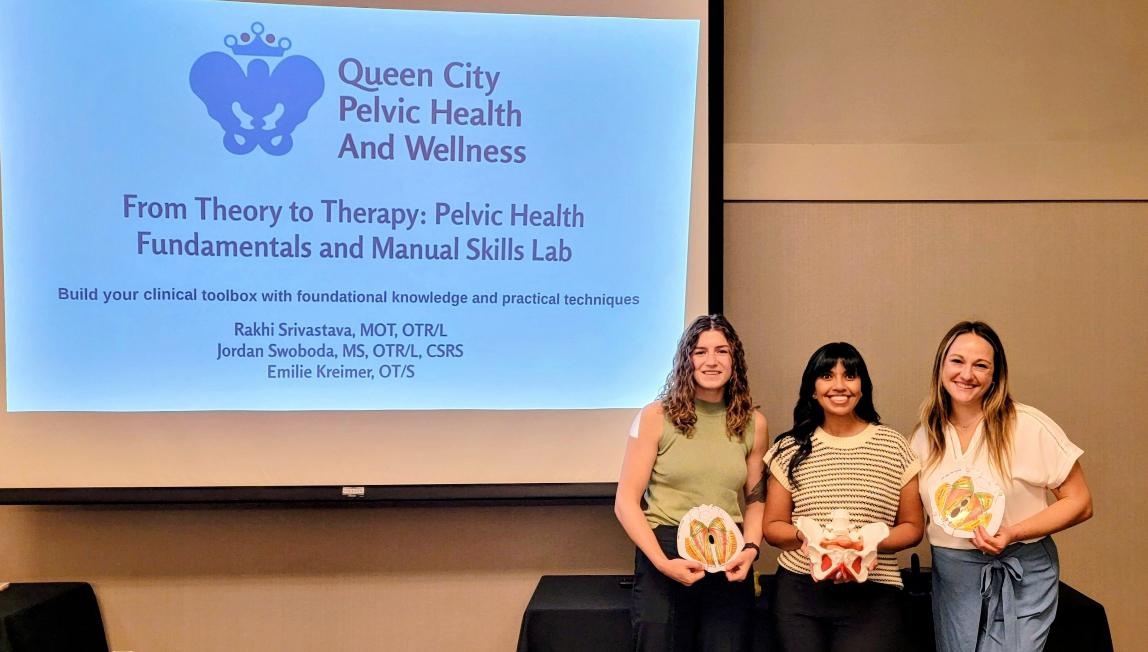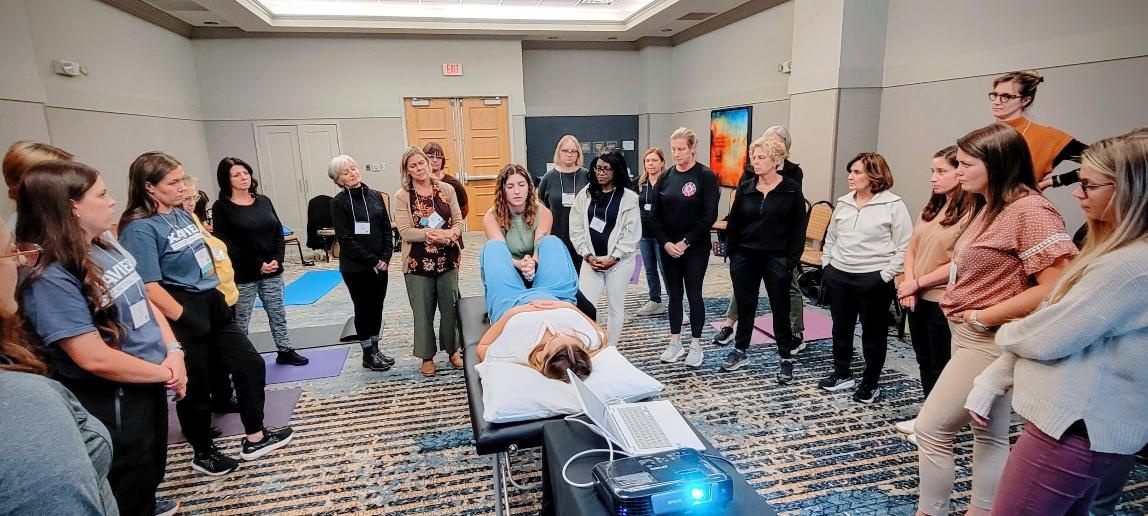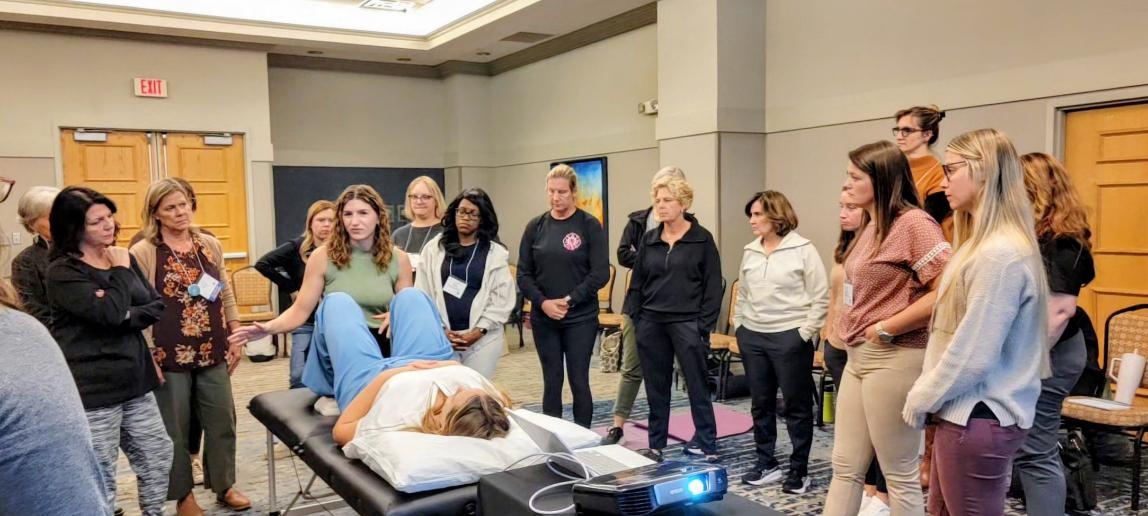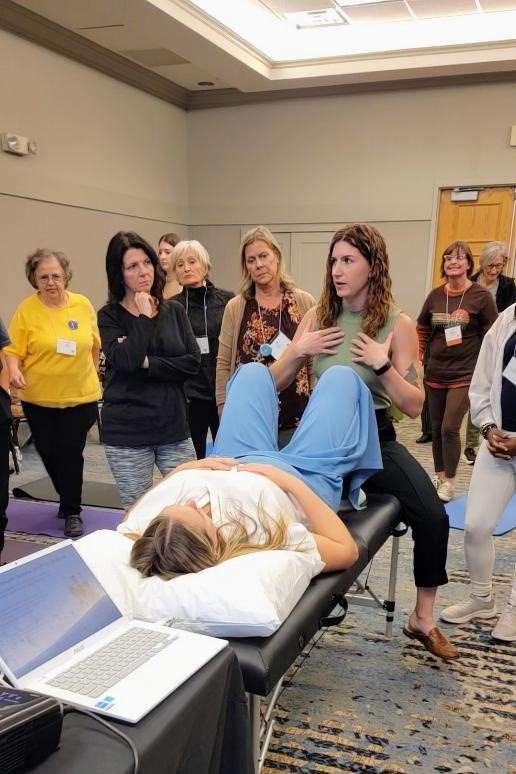My First OOTA Conference As a Capstone Student
written by Em Kreimer, OT/S
When I first heard about the OOTA Conference as a first-year student, I remember being curious but unsure. The event was several hours away, I was only a few months into the program, and I didn’t yet know what attending something like that could mean. This year, as a third-year student completing my capstone and serving as the OOTA Liaison for the University of Cincinnati’s Student Occupational Therapy Association, the timing finally felt right. I wanted to meet other professionals, learn about practice areas I hadn’t experienced in fieldwork, and see what opportunities existed beyond graduation.
That goal grew when my capstone mentor, Rakhi Srivastava, MOT, OTR/L invited me to co-develop and present the workshop “From Theory to Therapy: Pelvic Health Fundamentals and Manual Skills Lab” with her and Jordon Swoboda, MS, OTR/L, CSRS. Although I still have a lot to learn as an almost-new graduate, for that brief time I was one of the “experts.” It felt strange at first, but the atmosphere was welcoming and collaborative. Many clinicians were curious about pelvic health and interested in how occupational therapists can support clients in this area. It reminded me that professional growth is less about having all the answers and more about being willing to share what you know while continuing to learn.
The rest of the conference helped me see how wide-ranging our profession is. I attended sessions that tied into my own interests and others that introduced completely new perspectives. I met practitioners from settings I hadn’t worked in before and students who were just starting their journey. I also shared information about my capstone study with attendees and the OOTA social media chair, which helped increase participation. It was a small but meaningful reminder that conferences can be a great way to build connections and spread awareness about student projects.
OOTA gave me a clearer sense of connection to the profession. It showed me how professional organizations not only support continuing education and networking but also influence advocacy and policy at the state level. I plan to stay involved after graduation to keep learning, contribute to those efforts, and stay connected with others who are committed to advancing occupational therapy in Ohio.
For students at any stage, I would encourage attending at least once. In your first year, it’s a window into the field; in your second, a chance to explore interests beyond your coursework; and by your third, an opportunity to see yourself as part of the professional community you’re preparing to join.
Author Bio:
Emilie (Em) Kreimer is a doctoral student in Occupational Therapy at the University of Cincinnati, graduating in April 2026. She is currently completing her capstone on menstrual health and pelvic floor therapy, examining the impact of menstrual pain on daily life and how pelvic care can support occupational engagement. After graduation, she hopes to work in a setting that offers strong mentorship and the opportunity to continue developing her general clinical skills—such as in inpatient rehabilitation—while maintaining involvement in pelvic health practice.






Leave a Reply